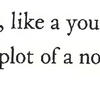2: Excerpt, Sholem Aleichem’s "The Trial of Shomer; or, the Verdict of the Jury on All the Novels of Shomer," 1888.
Two stylistic elements define the narrative structure of Motl, the Cantor’s Son. One, its episodic nature, is shared with other long Sholem Aleichem works such as Tevye the Dairyman and The Letters of Menakhem-Mendl and Sheyne-Sheyndl. The other, that these episodes are told from a child’s perspective, is unique. Yet in the author’s mind, these qualities were linked. Thinking about this connection will help students to consider the nature of tone, humor, and cause and effect in the novel.
Suggested Activity: Read the quotation aloud without mentioning the name of its author. Ask students, working in pairs or groups to conduct a close reading of this quotation. They should ask questions such as: What does it mean to be “naïve, like a young child”? How is this naiveté different from an adult’s? Why might believing a novel’s plot is essential be naïve? What kinds of knowledge or experience might lead one to believe otherwise? What other elements might be more essential than plot (e.g., characterization, social commentary, theme, humor, language)?
Reveal to students that this was a statement of Sholem Aleichem’s. Does this surprise them? Now focus on the content of the statement. Does Sholem Aleichem take a positive or negative stance toward the centrality of plot? What makes you believe this? How essential is plot to this novel? What is the effect of its episodic construction? Have students trace its narrative arc (rising action, falling action, etc.) This can be done individually, in groups, or on the board as a full class. The character of Motl is a child; what effect do students think this has on the plot structure? What other effect(s) does this perspective have on the storytelling? Have they read other works told from a child’s perspective? How are they similar or different? Why might Sholem Aleichem choose to tell one of the most important stories of twentieth century Jewish life—immigration from Europe to the United States—in the voice of a child?
Source: Sholem Aleichem, Shomers Mishpet: oder der sudprisyazhne af ale romanen fun Shomer (The Trial of Shomer; or, the Verdict of the Jury on All the Novels of Shomer), 1888. Quoted in Jeremy Dauber, The Worlds of Sholem Aleichem (Shocken, 2013), 58.
Resource_2_-_Dauber_excerpt.jpg
 Download image (88.08 KB)
Download image (88.08 KB)

